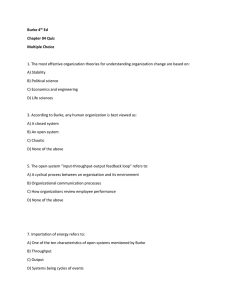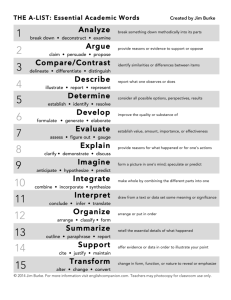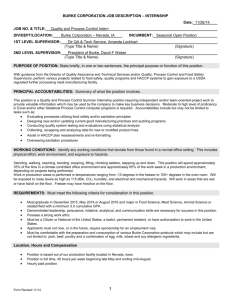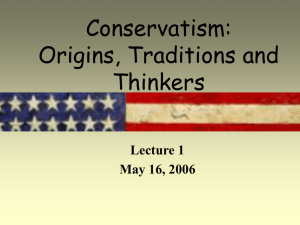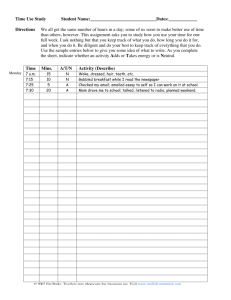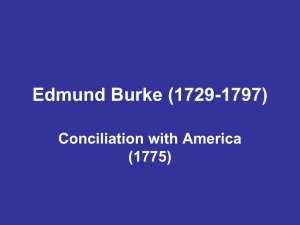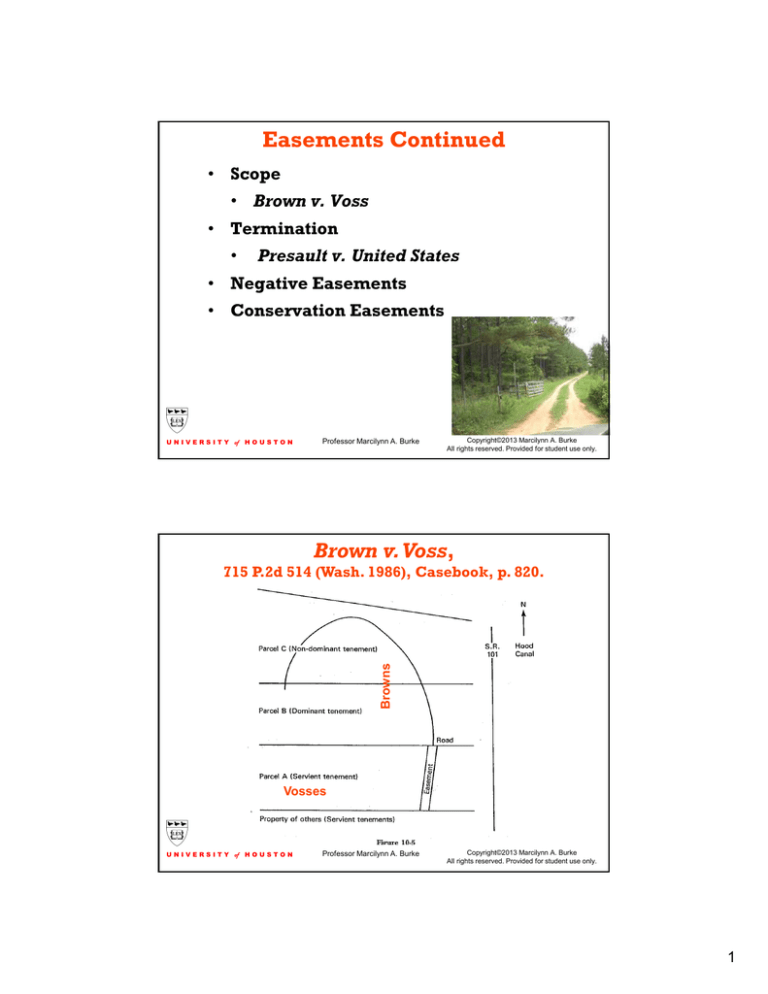
Easements Continued
• Scope
• Brown v. Voss
• Termination
•
Presault v. United States
• Negative Easements
• Conservation Easements
U N I V E R S I T Y of H O U S T O N
Professor Marcilynn A. Burke
Copyright©2013 Marcilynn A. Burke
All rights reserved. Provided for student use only.
Brown v. Voss,
Browns
715 P.2d 514 (Wash. 1986), Casebook, p. 820.
Vosses
U N I V E R S I T Y of H O U S T O N
Professor Marcilynn A. Burke
Copyright©2013 Marcilynn A. Burke
All rights reserved. Provided for student use only.
1
Brown v. Voss Cont’d
Scope
May the owner of the dominant
tenement extend the use of an easement
to non-dominant land?
• Extension of appurtenant easement
• Injunctive relief
U N I V E R S I T Y of H O U S T O N
Professor Marcilynn A. Burke
Copyright©2013 Marcilynn A. Burke
All rights reserved. Provided for student use only.
Brown v. Voss Cont’d
Scope Cont’d
• Court changes bright line rule into
discretionary rule.
• Why not issue injunction and allow
parties to bargain?
• Protection of servient owner?
• Private way of necessity
U N I V E R S I T Y of H O U S T O N
Professor Marcilynn A. Burke
Copyright©2013 Marcilynn A. Burke
All rights reserved. Provided for student use only.
2
Brown v. Voss Cont’d
The rest of the story . . . .
U N I V E R S I T Y of H O U S T O N
Professor Marcilynn A. Burke
Copyright©2013 Marcilynn A. Burke
All rights reserved. Provided for student use only.
The U.S. Court of Appeals for
The Federal Circuit
• Same level in the “hierarchy” as the
regional circuit courts.
• Twelve judges – all located in D.C.;
court sits in panels of three.
• National subject matter, rather than
regional jurisdiction.
U N I V E R S I T Y of H O U S T O N
Professor Marcilynn A. Burke
Copyright©2013 Marcilynn A. Burke
All rights reserved. Provided for student use only.
3
• Hears almost all patent appeals.
• Hears trademark appeals from the
USPTO.
• Hears cases in certain situations
where a monetary judgment or other
relief is sought against the
government.
U N I V E R S I T Y of H O U S T O N
Professor Marcilynn A. Burke
Copyright©2013 Marcilynn A. Burke
All rights reserved. Provided for student use only.
The U.S. Court of Appeals for
The Federal Circuit
• Hears cases from the Court of
International Trade.
• Hears “labor” law cases and cases on
appeal from the Veterans Affairs
system.
Professor Greg Vetter
U N I V E R S I T Y of H O U S T O N
Professor Marcilynn A. Burke
Copyright©2013 Marcilynn A. Burke
All rights reserved. Provided for student use only.
4
Preseault v. United States,
100 F.3d 1525 (Fed. Cir. 1996), Casebook p. 831.
Four Questions to Be Answered
1. Did the railroad have a fee simple or
an easement?
2. If an easement, does the scope of the
easement include using the
easement for a public trail?
U N I V E R S I T Y of H O U S T O N
Professor Marcilynn A. Burke
Copyright©2013 Marcilynn A. Burke
All rights reserved. Provided for student use only.
Preseault v. United States Cont’d
Four Questions to Be Answered
3. If we were to assume trail use were
within the scope of the easement,
was the easement abandoned?
4. Is public use of the strip, authorized
by the ICC, a taking of private
property?
U N I V E R S I T Y of H O U S T O N
Professor Marcilynn A. Burke
Copyright©2013 Marcilynn A. Burke
All rights reserved. Provided for student use only.
5
At the time we bought it, I didn’t know what an “easement” was!
U N I V E R S I T Y of H O U S T O N
Professor Marcilynn A. Burke
Copyright©2013 Marcilynn A. Burke
All rights reserved. Provided for student use only.
Negative Easements
• Four traditional types
• English resistance
• U.S. relaxation
• Servitudes
U N I V E R S I T Y of H O U S T O N
Professor Marcilynn A. Burke
Copyright©2013 Marcilynn A. Burke
All rights reserved. Provided for student use only.
6
Conservation Easements
• Environmental
• Farms
• Perpetual, transferable, and can be in
gross
• Tax deductions
• Shams
U N I V E R S I T Y of H O U S T O N
Professor Marcilynn A. Burke
Copyright©2013 Marcilynn A. Burke
All rights reserved. Provided for student use only.
Covenants and Privity
Privity between original parties
in context of a transfer of estate in land
(known as “horizontal privity”)
Promisee;
(e.g., B sells to A)
benefit to
Whiteacre
A
A
sells to
D
B
Promisor;
burden on
Blackacre
B
sells to
C
Privity between promisee
and assignee
(known as “vertical privity”)
D
U N I V E R S I T Y of H O U S T O N
Privity between promisor
and assignee
(known as “vertical privity”)
C
Professor Marcilynn A. Burke
Copyright©2013 Marcilynn A. Burke
All rights reserved. Provided for student use only.
7
Real Covenants
1. Must be in writing to satisfy the
Statute of Frauds.
2. Must be what the parties intended.
3. Must touch and concern (T&C) the
land with which it runs.
4. Must have horizontal privity of estate.
5. Must have vertical privity of estate.
U N I V E R S I T Y of H O U S T O N
Professor Marcilynn A. Burke
Copyright©2013 Marcilynn A. Burke
All rights reserved. Provided for student use only.
Real Covenants
3. Must touch and concern (T&C) the
land with which it runs, that is—
• it must have a logical connection to
the use and enjoyment of land, or
• it must physically affect the use and
enjoyment of the land, or
• the promisor’s legal interest as an
owner must be rendered less
valuable by the promise and the
promisee’s legal interest as an
owner must be made more valuable
by the promise.
U N I V E R S I T Y of H O U S T O N
Professor Marcilynn A. Burke
Copyright©2013 Marcilynn A. Burke
All rights reserved. Provided for student use only.
8
Real Covenants Cont’d
4. Must have horizontal privity of estate:
the relationship among—
(a) the original promisor (owner of
burdened land),
(b) the original promisee (owner of
benefited land), and
(c) the affected estate in land.
U N I V E R S I T Y of H O U S T O N
Professor Marcilynn A. Burke
Copyright©2013 Marcilynn A. Burke
All rights reserved. Provided for student use only.
Real Covenants Cont’d
5. Must have vertical privity of estate: the
relationship among—
(a) the original promisor or promisee
under a covenant,
(b) the promisor’s or promisee’s
successor in interest, and
(c) the affected estate in land.
U N I V E R S I T Y of H O U S T O N
Professor Marcilynn A. Burke
Copyright©2013 Marcilynn A. Burke
All rights reserved. Provided for student use only.
9
Equitable Servitudes
To be enforceable against a successor in
interest—
• Intent
• Notice (unless successor gave no
consideration)
• T&C
• [Writing – maybe]
U N I V E R S I T Y of H O U S T O N
Professor Marcilynn A. Burke
Copyright©2013 Marcilynn A. Burke
All rights reserved. Provided for student use only.
10

